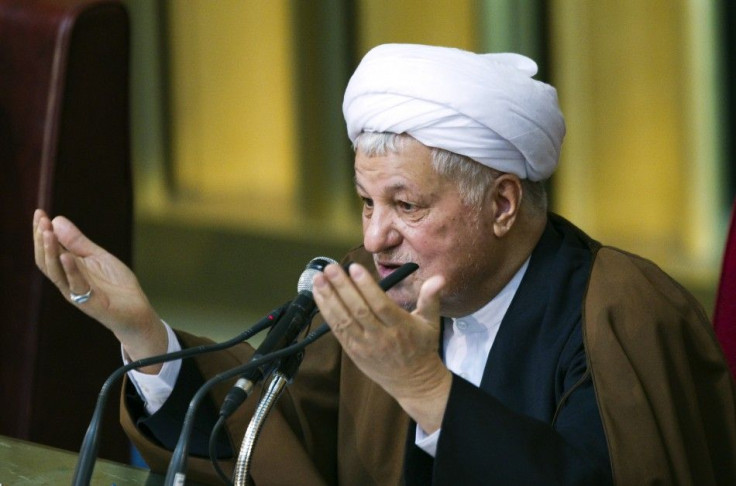Iran’s Rafsanjani Calls for Improving Relations With Saudis, Restoring U.S. Ties

A senior Iranian official has called for his country to improve relations with Saudi Arabia, amidst a widening gulf between Sunni and Shia Muslims across the Middle East and the imposition of Western sanctions on Iran’s key oil sector.
Agence France Presse reported that Akbar Hashemi Rafsanjani, a former president of Iran and current chairman of an advisory body to Supreme Leader Ayatollah Ali Khamenei, has also called for the resumption of ties with the U.S.
“If we had good relations with Saudi Arabia, would the West have been able to impose sanctions?”, Rafsanjani said in International Studies Journal, an Iranian publication.
“Only Saudi Arabia could fill the void left by Iran. [All they have to do is] produce oil within their OPEC quota, and then no one would be able to harass us.”
He added: “Relations with Saudi Arabia are not a trivial matter. I think it is still possible to form good relations. But there are people who do not want this... some harsh remarks coming from both sides should be corrected.”
Saudi Arabia’s relations with Iran have been frayed over the number of issues – Iran’s support of Syrian leader Bashar al-Assad is only the latest. The Sunni-dominated Saudi government also finds itself increasingly at odds with the Shia Iranian regime over Iraq and Bahrain, as well as Riyadh’s relationship with the U.S.
The Saudis are reportedly greatly concerned by Iran’s alleged nuclear power ambitions and the impact of such a development on the Persian Gulf.
Moreover, Saudi Arabia has promised to maintain its high oil production in anticipation of a sharp reduction in Iranian oil exports once Western sanctions on Iran come into effect.
Rafsanjani, who lost the 2005 presidential election to Mahmoud Ahmadinejad, also called for the resumption of diplomatic relations with the United States, which have been severed ever since the 1979 Islamic Revolution that deposed the Shah, a longtime U.S. ally.
“If we negotiate with them [Europe, China and Russia], why should we not talk with America? The meaning of negotiation is not that we submit to them. We negotiate, and if they accept our positions or we accept theirs, then it is done,” he explained.
Rafsanjani has long espoused the restoration of relations with the U.S., going back to the rule of Ayatollah Ruhollah Khomeini.
However, given the dominance of hard-liners in Iran’s government, Rafsanjani’s conciliatory and moderate policy proposals have been largely rejected and marginalized by the Tehran establishment.
© Copyright IBTimes 2024. All rights reserved.











